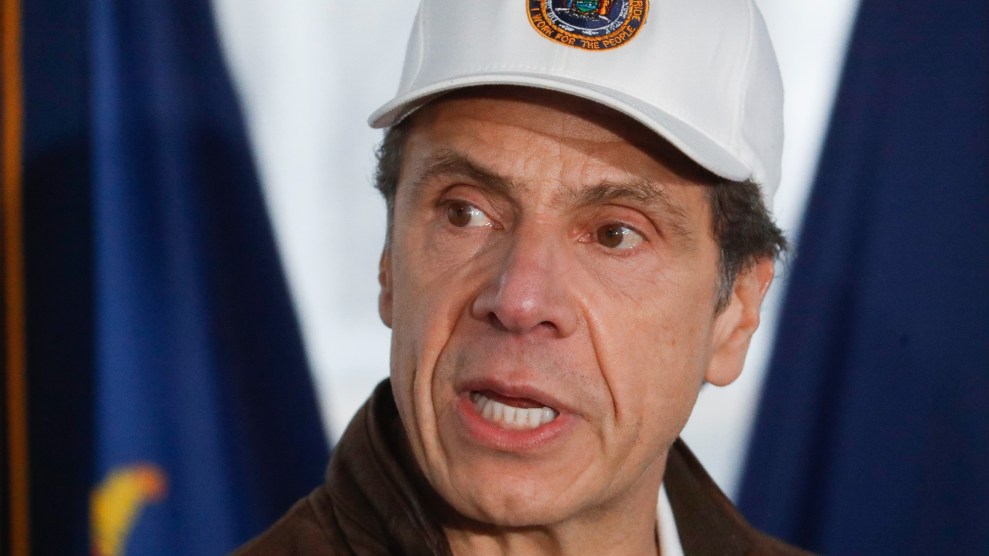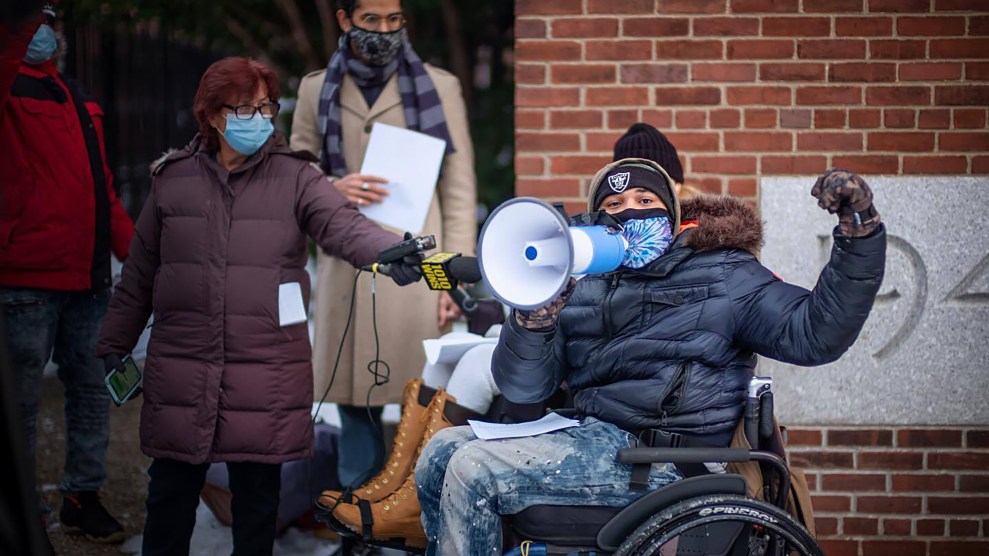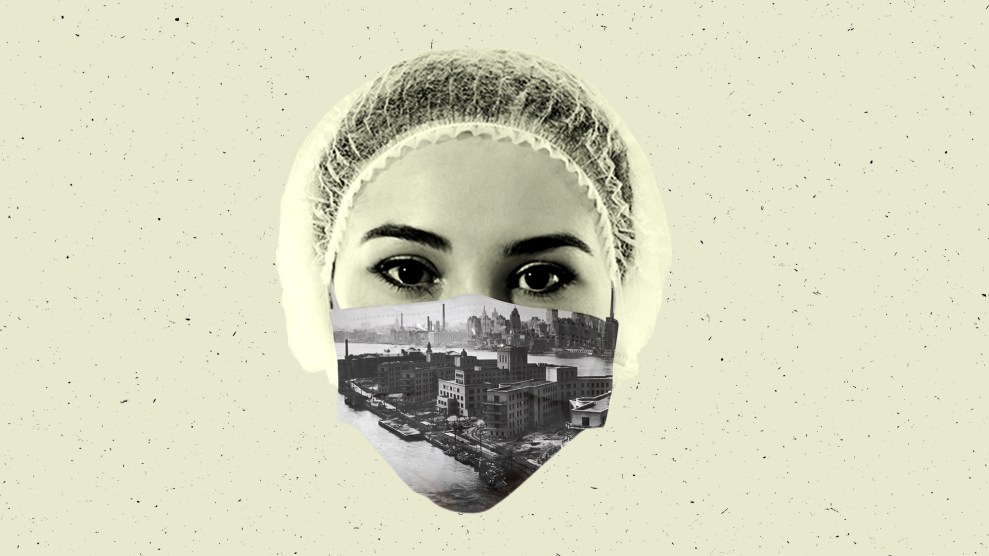
Joe Minchillo/AP
Over the last six months, government officials and journalists have surfaced damning information that suggests New York Governor Andrew Cuomo’s administration attempted to diminish the true pandemic death toll in the state’s nursing homes. State attorney general data revealed that New York’s public tally of nursing home deaths may have undercounted the fatalities by up to 50 percent, and the New York Times uncovered efforts by Cuomo’s aides to stop health officials from sharing that data with state lawmakers and the public. These moves coincided with a time when Cuomo was trying to ink a multi-million-dollar deal for a book about his handling of the COVID crisis, capitalizing on the image he’d cultivated as a hard-charging hero of pandemic leadership when New York City was the COVID epicenter in the spring of 2020.
On Friday, the Justice Department disclosed that it has declined to further investigate what happened in New York.
In letters sent to several lawmakers, DOJ said that it would not open a civil investigation into New York’s handling of the pandemic in nursing homes. In a letter to Rep. Lee Zeldin (R-N.Y.), who plans to challenge the three-term embattled incumbent in New York’s gubernatorial race in 2022, the department said that it had requested information from the state of New York last summer. “We have reviewed the information provided,” wrote deputy assistant attorney general Joe Gaeta. “Based on that review we have decided not to open a [Civil Rights of Institutionalized Persons Act] investigation of any public nursing facility at this time.”
Meanwhile, New York’s handling of death toll data at nursing homes is the subject of an ongoing investigation by the US attorney’s office in Brooklyn and by the FBI. Cuomo also faces an unrelated state inquiry over allegations of sexual harassment, after nearly a dozen women came forward with accusations against him this spring.
The DOJ also declined to open investigations into the pandemic response in nursing homes in Pennsylvania and Michigan.
Each of these three states had issued policies at the height of the first COVID wave in the spring of 2020 that required nursing homes to admit COVID-19 patients, despite the lack of adequate testing and the high risk for severe COVID complications or death among nursing homes’ elderly populations. These “must-admit” orders appeared as nursing homes became some of the hardest-hit locations. As my colleague Molly Schwartz explained in February:
When the coronavirus first appeared in the US, nursing homes were an epicenter of infection and have continued to have the highest mortality and infection rates of any population. Infections rates in nursing homes surged to a high in late November following Thanksgiving travel, and the death counts continue to rise, peaking at 7,004 weekly deaths in nursing homes alone the week of January 14. As of February 2, 153,159 of the 443,751 Americans who have died from COVID-19—a whopping 35 percent—are residents of long-term care facilities; they account for less than 1 percent of the US population.
Last summer, the Justice Department—then under Trump administration leadership—requested more information from these three states, as well as New Jersey, to assess whether their “must-admit” policies may have caused pandemic deaths in nursing homes. On the basis of this information, the DOJ had opened an investigation in New Jersey. But Friday’s announcement from the department effectively ended the chances of a federal probe in the other three states.
The announcement provoked fierce criticism from several Republican lawmakers for the department’s decision not to investigate the “must-admit” orders that may have spurred COVID outbreaks in care facilities. “Where is the justice for nursing home victims and their grieving families?” said Rep. Steve Scalise (R-La), ranking member of the House Subcommittee on the Coronavirus Crisis, in a statement. “These deadly orders contradicted the CDC’s guidance, and needlessly endangered the most vulnerable among us to the deadly COVID-19 virus.”
















